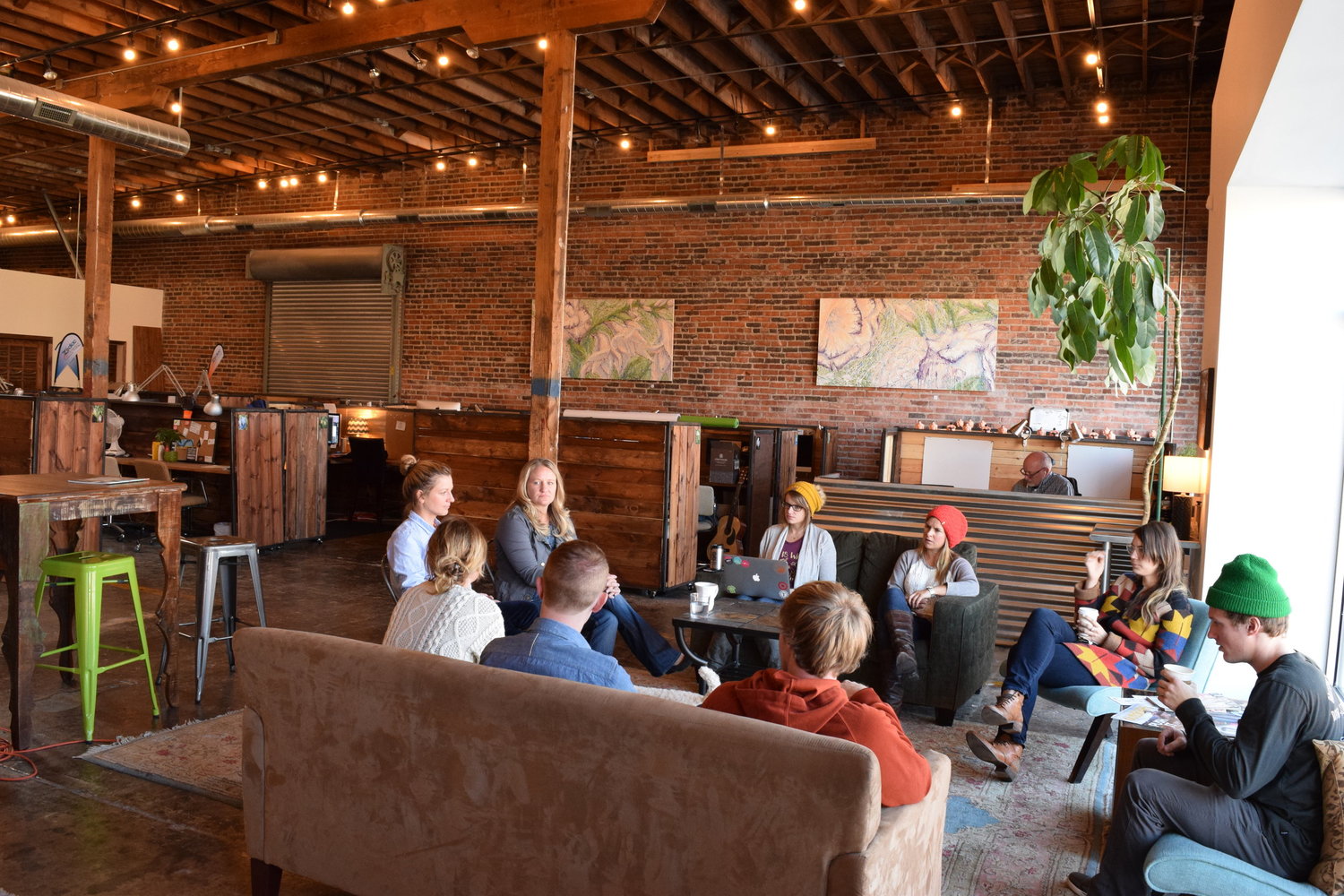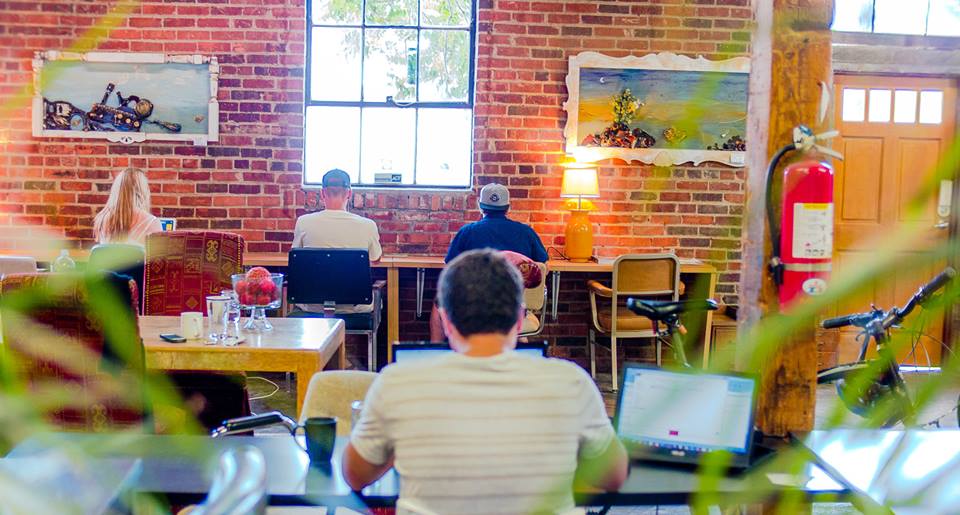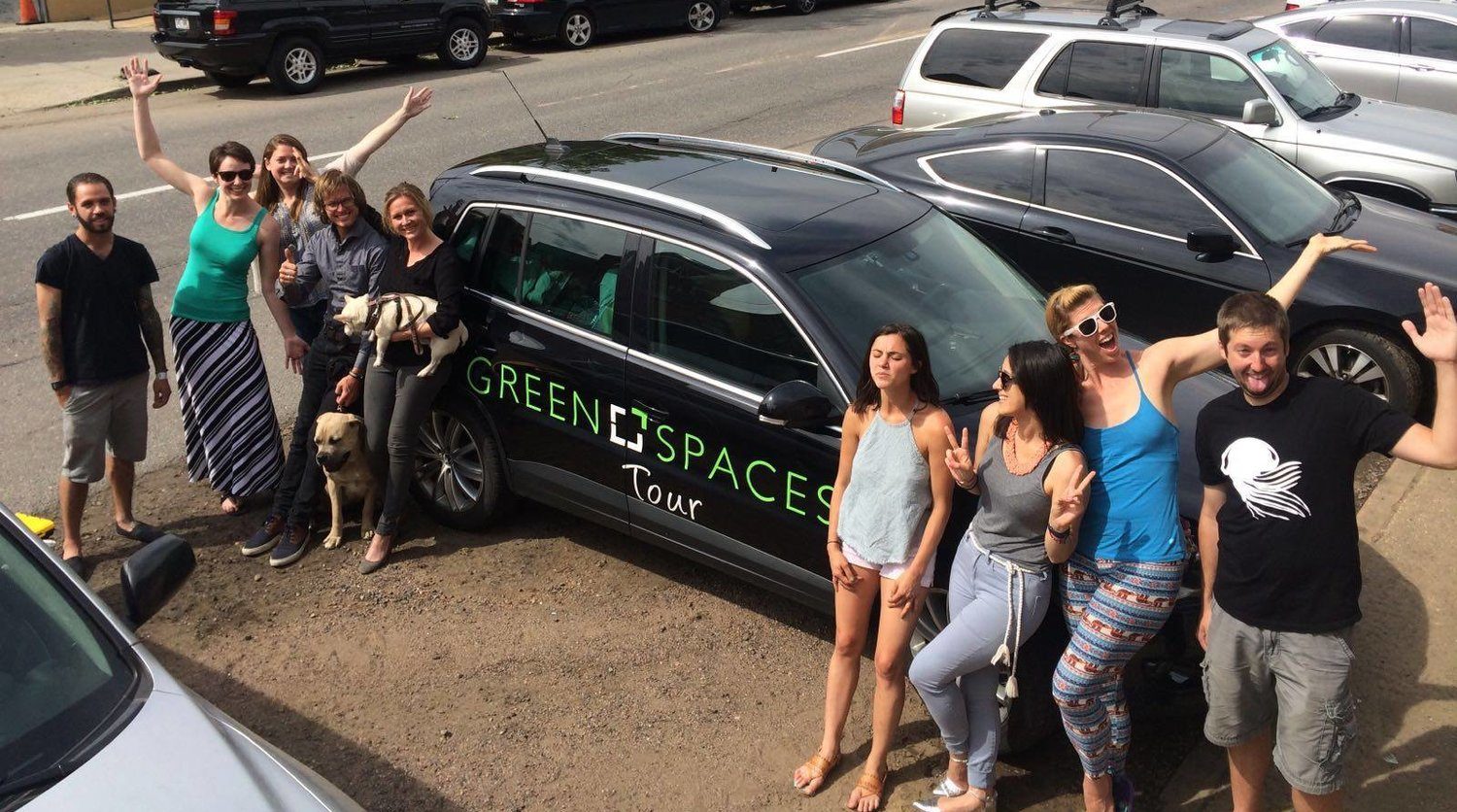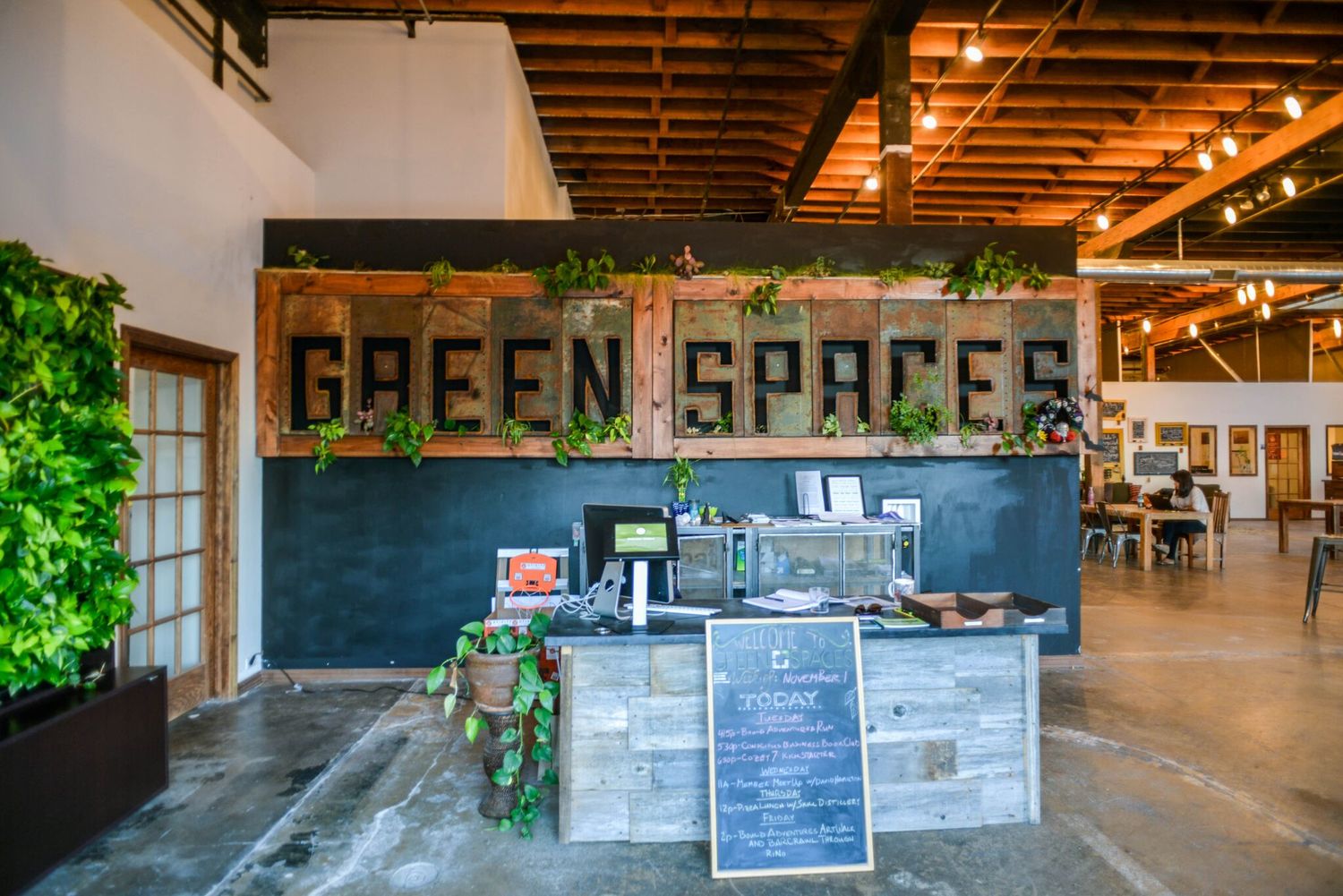Jennie Nevin, founder of Green Spaces in Denver, Colorado talks about the tangible and subjective benefits of operating an environmentally friendly coworking space.
“Coworking spaces are inherently a green approach to real estate; you’re sharing resources.” – Jennie Nevin, Green Spaces
Back in 2009 when Jennie Nevin opened Green Spaces, being environmentally friendly was an option, not a necessity. Since then things have changed.
“We’re running out of resources,” Nevin says, but that’s not all; recent climate and weather changes make it impossible to deny that global warming is a growing concern, and one that we all need to address.
Even before opening her green coworking space, Nevin had been highly and actively involved with the ‘green’ movement. “I used to run a networking group, Green Leaders, in New York City that focused on green initiatives and projects.”
Her very own initiative and project would naturally be environmentally conscious then.
Back then, and even to this date, being a green workspace gives Green Spaces a competitive advantage over its competitors. Six years ago, this competitive advantage was that they were breaking paradigms, being ‘green’ was their differentiating factor.
Today, in 2016, that competitive advantage has shifted in form. “All businesses will need to become sustainable in the (near) future,” Nevin tells us, and the competitive advantage Green Spaces has and will continue to have in coming years is that they will be leaders and trendsetters when it comes to implementing and adopting sustainable practices in the workspace.
Afterall, they’ve been doing it for years now.
Green Spaces

Green Spaces is certified green through Certifiably Green Denver, a complimentary program offered by the City of Denver to local businesses. The certification is given to those businesses that meet the environmental qualifications in various categories, including material sourcing, waste, electricity, and water management, among others.
Being certified green by Certifiably Green Denver brings various benefits to the workspace and to its members. For one, “it (the certification) connects you with the broader community; it also gives recognition and makes sure we’re up to standard.” On the member side, it makes it easier for them to become green certified. “Because their workspace is already certified as green, it makes their certification process go faster and more smoothly.”
The Tangible Benefits
Generally speaking, Nevin mentions how sustainable practices help significantly lower operation costs. “Because we have solar panels (160 to be exact) and use LED light bulbs, our electricity bill is rather low.” Additionally, she tells us that being green means taking advantage of and using reclaimed and reused materials in any way possible. “These materials are cheaper and, I think, they add personality to the space.”
The benefits don’t stop there. Nevin shares with us how being an eco-friendly space has led them to connect with the local community and its businesses on a deeper level. Though arguably networking isn’t a ‘tangible’ benefit, Nevin tells us how she and her members have been able to form partnerships with other businesses, which has led to fellow sustainable brands providing them with furniture and decoration.
And workspace furniture, as you know, can be quite pricey.
The Not So Tangible But Still Important Benefits
[ezcol_1half] [/ezcol_1half] [ezcol_1half_end]
[/ezcol_1half] [ezcol_1half_end] [/ezcol_1half_end]
[/ezcol_1half_end]
One of the reasons why sustainability has become such a hot topic is because people are starting to realize that it’s not just about the environment, but also about us humans.
New studies have increasingly linked green spaces with better health and wellbeing among users. It also helps build a stronger brand reputation, making consumers and clients more loyal to the business or product.
Nevin has seen this first hand. “Our members truly appreciate how thoughtful we are about our materials, and they also feel proud and comfortable bringing in new people to the space.”
“By being green, we’ve been able to really strengthen our overall community; from being eco-friendly people get a sense of a common and shared purpose.”
Green Spaces doesn’t require for members to be green businesses as well, but they do ask that members care about this philosophy. The coworking space also provides special benefits to nonprofits sand high impact organizations that are green. Still, Nevin mentions how for the most part, members of the workspace have adopted some sort of sustainable habit or practice.
“We encourage our members to walk and bike, to participate in ride sharing and to use alternative transportation methods.”
Among the many sustainable practices in Green Spaces you’ll find: composting, high recycling rates, low waste levels, solar panels, wood planter boxes, and native and organic garden.
In the end, it boils down to caring. As a flexible workspace operator, you’re already one step ahead, you’re already sharing resources. But take it one step further and go green.
*All images via Green Spaces



 Dr. Gleb Tsipursky – The Office Whisperer
Dr. Gleb Tsipursky – The Office Whisperer Nirit Cohen – WorkFutures
Nirit Cohen – WorkFutures Angela Howard – Culture Expert
Angela Howard – Culture Expert Drew Jones – Design & Innovation
Drew Jones – Design & Innovation Jonathan Price – CRE & Flex Expert
Jonathan Price – CRE & Flex Expert















